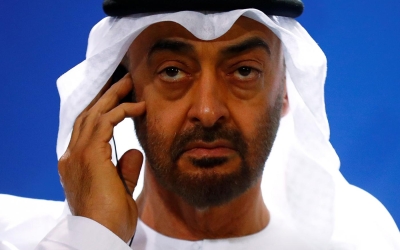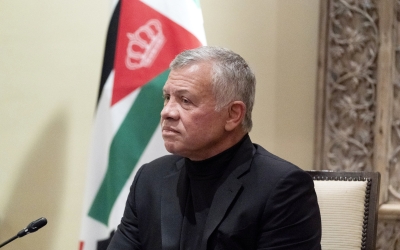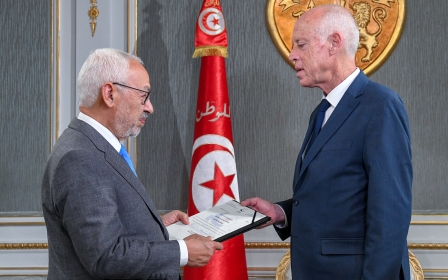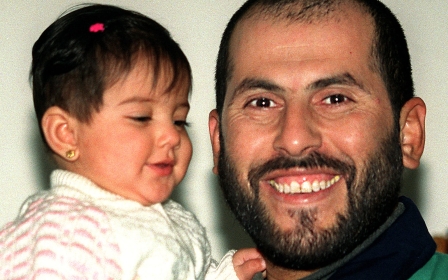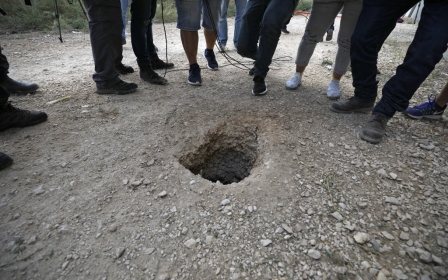Arabic press review: Suicide rates increase sharply in Egypt

Suicide rates increase in Egypt
Suicide rates are increasingly rapidly in Egypt, according to an Arabi21 report that references the work of a number of human rights organisations.
Between 30 and 35 suicides are now being recorded every month, and this escalation has led to the launch of a campaign looking to combat the issue. Nearly 200 people have reportedly taken their own life in Egypt this year, according to the report.
Human rights organisations indicated that the dire economic and social situation Egyptians currently face has led to the country recording a sharper rise in suicide rates than almost any other in the Arab world. Economic problems are leaving young people frustrated and desperate, and are the source of marital and family disputes, the report said.
The Al-Azhar Foundation has launched a campaign entitled, "Do not despair. No to suicide", aimed at tackling the phenomenon.
New MEE newsletter: Jerusalem Dispatch
Sign up to get the latest insights and analysis on Israel-Palestine, alongside Turkey Unpacked and other MEE newsletters
UAE adviser admits regional interference
An Emirati academic close to the authorities in Abu Dhabi has admitted on Twitter that the UAE has directly interfered in the policies of countries in the region.
Abdulkhaleq Abdulla, a political adviser close to decision-making circles in Abu Dhabi, said indirectly that his country had acted against the Muslim Brotherhood in nations across the Middle East.
Posting on Twitter, the adviser to Abu Dhabi Crown Prince Mohammed bin Zayed wrote: "After a decade of difficult confrontations, the UAE emerged victorious in the battle against the absurdity of the Brotherhood and was able to stop its advance throughout the Arab world."
He added: "The UAE has contributed to strengthening the axis of stability and moderation in the face of the forces of terrorism and chaos."
The Emirati politics professor said that Abu Dhabi is now preparing for what he described as more important national and global missions in the decade to come.
Morocco shows support for detained imam
Several Moroccan human rights defenders have expressed their solidarity with the imam of a mosque who was arrested, fined and imprisoned for protesting about his financial situation, according to the London-based Al-Quds al-Arabi newspaper.
The jurists have asked Ahmed al-Tawfiq, the minister of endowments and Islamic affairs, to retract the imam's arrest and improve his financial conditions - as well as those of other religious workers in mosques.
Imam Saeed Abu Ali was arrested after he went to the endowments ministry, where he protested the decision to suspend him from his duties and asked to meet the minister. He was sentenced to two years in prison and fined 10,000 dirhams ($1,114).
Human rights activist Khaled al-Bakari expressed his solidarity with the imam, who he described as "a graduate of ancient religious schools and a director of one of them", before going on to say that the result of his upcoming trial would say a lot about the religious and social life of the North African kingdom
Jordan's labour crisis
Amendments made by the Jordanian authorities to labour law in the country have been sharply criticised by unions and other organisations defending workers' rights, according to a report in the New Arab newspaper.
The amendments have been attacked for not addressing the basic problems of the labour market, particularly the need to provide proper protection for workers and to limit violations committed against them.
According to the report, the amended law, which has not yet come into effect, also includes "restricting the right of establishing unions or entities that defend workers' rights".
A Jordanian official said: "It is possible that the government will withdraw the amended draft labour law that it had previously referred to parliament, even though the relevant parliamentary committee approved the amendments requested by the government."
These developments come in the wake of the launch of a labour campaign in cooperation with human rights and legal associations, calling for the draft law to be withdrawn and reconsidered in accordance with international labour standards.
Ahmad Awad, head of the Labour Observatory organisation, said the intended amendments to the labour law did not respond to the need to reduce increasing violations against workers, improve working conditions and allow the establishment of trade unions to defend their members and negotiate on their behalf.
*Arabic press review is a digest of reports that are not independently verified as accurate by Middle East Eye
Middle East Eye delivers independent and unrivalled coverage and analysis of the Middle East, North Africa and beyond. To learn more about republishing this content and the associated fees, please fill out this form. More about MEE can be found here.


